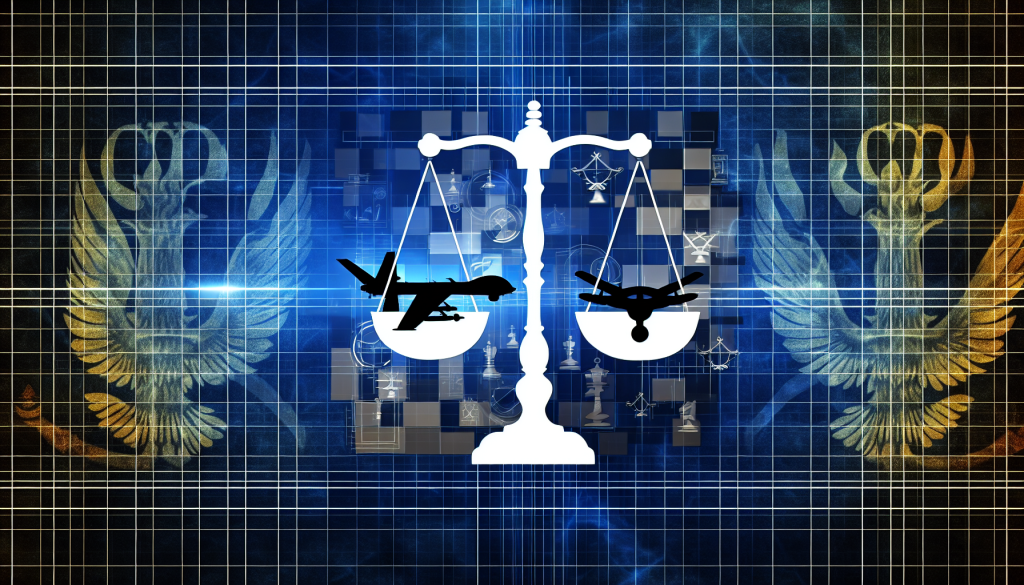The Ethical Dilemmas of Targeted Killing with Drones
Understanding Targeted Killing
The debate around targeted killing, especially through the use of drones, raises complex ethical questions. While targeted killing itself isn’t a new concept, the mode of execution—with drones—introduces unique complications. It’s important to differentiate between targeted and untargeted killing. The latter, which includes acts labeled as terrorism, such as bombings in public spaces, elicits universal condemnation without qualifications. Conversely, targeted killings, even if morally contentious, initiate a debate about justice, necessity, and the implications of warfare.
The Just Assassin
Historical perspectives on assassinations help frame these discussions. Assassination, as illustrated in literature such as Albert Camus’s play “The Just Assassins,” posits that the morality of killing hinges on the targets—often political figures—and the regimes they represent. While many would argue that there are substantial moral implications attached to every assassination, it is crucial to recognize that such actions may sometimes be deemed “less wrong” than acts of terrorism. The assassin’s careful choice to aim at a specific target indicates a rejection of indiscriminate killing and an awareness of collateral damage—two elements that are often entirely absent from terrorist acts.
Limits of Justified Assassination
Setting boundaries around political assassinations is paramount. In democratic societies, the assassination of leaders is indefensible—regardless of political disagreements. Tyranny presents a different landscape, yet the ideal response should always emphasize justice through trial over assassination. Historical examples like the Nuremberg Trials serve as arguments in favor of dismantling oppressive regimes through lawful processes rather than through targeted killing.
International Laws and Targeted Killing
International laws of war compel us to consider the implications of removing political leaders, who are often essential in brokering peace agreements. While certain tyrants may appear to be straightforward targets—like Hitler—such eliminations must be examined against the backdrop of ethical warfare. Military leaders certainly fall within the realm of legitimate targeting in wartime; yet, the same cannot be broadly applied to political insurgents or terrorists, showcasing the nuanced ethical terrain these discussions occupy.
The Nature of Warfare and Zones of Peace
The setting in which these operations take place can drastically alter moral standings. Zones of war, such as Afghanistan, might warrant targeted killings of terrorist leaders, yet the same justification fails in peaceful regions, such as Philadelphia, where criminal prosecution is the appropriate response. The challenges of intermediate zones, like Yemen, blur these lines, complicating moral and legal assessments and demanding stricter criteria for targeted actions.
Consequences of Targeting Decisions
Complications arise when considering how targeted killings affect civilians. The principle of proportionality dictates that the loss of innocent lives should not outweigh the military objectives sought. Historical context—like the hesitation of the Clinton administration to strike bin Laden’s camp due to the presence of children—highlights the weight of ethical considerations in these decisions. Effective intelligence gathering must precede action, as the risks of collateral damage increase substantially in conflict zones.
Drone Warfare: Innovation and Implications
The advent of drone technology amplifies concerns surrounding targeted killings. Whereas conventional means expose operatives to direct danger, drones enable strikes from a distance, removing immediate risk to those executing the action. Yet this detachment can lead to a desensitization of warfare and an increase in the frequency of strikes. The precision that drones can offer may prompt a recalibration of criteria and red flags regarding when and how they are deployed.
The Secrecy Attached to Drone Operations
Secrecy and the lack of transparency surrounding drone warfare complicate inquiries into its ethics and effectiveness. Discrepancies exist in casualty reporting and assessments of insurgents versus civilian deaths, which can diverge significantly based on the sources of information. Varying estimates raise questions on how these operations are conducted and assessed by governmental bodies.
Societal Impact of Drone Presence
The psychological impact of living under a surveillance drone creates an environment of fear among civilians that should not be overlooked. Reports indicate that the constant drone presence contributes not only to anxiety but also to social upheaval, raising moral questions about the broader implications of conducting warfare this way.
Challenges in Governance of Drone Usage
There is an alarming trend in shifting definitions and standards that govern drone strikes, particularly regarding who qualifies as a legitimate target. The method used in the past to classify military-age males as combatants illustrates a problematic step away from established ethical norms. While there have been calls for clearer definitions and stricter guidelines, enforcement remains an uphill battle amidst governmental secrecy.
The Controversial Expansion of Drone Warfare
The potential for further militarization of drone technology invites us to contemplate a future in which countless actors can wield drones without scruples, reflecting concerns over global security and the ethics of preemptive strikes against groups that don’t pose immediate threats. Historical examples remind us of the slippery slope toward excessive intervention that could emerge from an expansive interpretation of enemy targets.
The Democratic Front in Drone Warfare
The ease of executing targeted kills via drone strikes often socially disenfranchises citizens, detaching them from the realities of warfare. With the executive branch wielding such power with minimal checks, key democratic principles are undermined. Effective governance must involve public conversation and transparency around the justifications and ethics of these actions.
Concluding Thoughts
Engagement with the complexities of drone warfare necessitates an ongoing dialogue about ethics, governance, and international law. Advocacy for strict adherence to moral standards, transparent operations, and proactive civilian protections will help shape how targeted killing evolves in this new age of warfare. Addressing these concerns requires not just robust legal frameworks but also a commitment to maintaining high ethical standards as a reflection of our society’s values.

